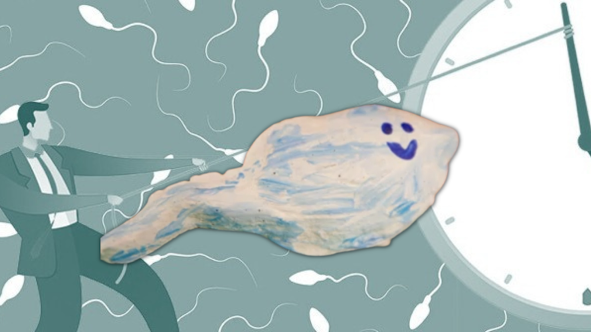A men-opause? Men may possess biological clocks, says andrologist
Bea Santina
The human body is a wondrous timekeeping machine that “changes” with age; various phenomena occur in our biological system that most of us aren’t even aware of. As the human body takes years to fully develop, many changes come as someone transitions throughout the adolescence stage and even towards adulthood. These changes are part of our biological clock.
 |
| Photo Courtesy to DW/Stock Photo |
It is a long established fact that women have clocks that dwindle until they reach menopause. Yet, a new study about men’s bodies reveals that they may possess clocks of their own.
Men and women in puberty
Among women, there is a puberty determinant called the menarche, which is the first monthly cycle that defines girls’ entry towards womanhood. On the other hand, men show signs of puberty through the growth of facial hair, growth spurts and the development of a deeper voice.
Aside from puberty, women also encounter the menopause phase. In their lifetime, women have a limited number of eggs (ova) produced from their ovaries, with experts approximating this number to a total of 400,000 eggs. As they grow older, they begin to lose their ova one by one from the day they were born.
On the contrary, men constantly produce new sperm. According to Christian Leiber-Caspers, head of andrology at the Clinic for Urology, Pediatric Urology, Urogynecology and Andrology at the Maria-Hilf Hospital Alexianer Krefeld in Germany, men can produce nearly 39 million sperm in one ejaculation alone. “Some may even have as many as 200, 300 or even 400 million sperm,” Leiber-Caspers adds.
This constant renewed production of sexual gametes in men leads us to ask: could men be different than women, as they do not have clocks with “expiration dates”? Recent research challenges this thinking.
“The limit does exist?”
Having a constant stream of reproductive cells does not mean that there are no cons when it comes to men and procreation. Despite not having a limit on procreation, men are not safe from the tick of time.
As explained by recent studies discussed by Leiber-Caspers, the older males get, the greater the chance that their sperm will pass on mutations to their offspring. It has been discovered in several studies that men who are above the age of 40s, 50s, or 60s experience these genetic alterations. The duplication of genetic material from their existing sperm cells leads to mutations and errors (both minor and major) in reproduction.
Thus, as a man grows older, the risk of birth defects they pass on to their offspring gets significantly higher. One such example explained by the expert is as follows: if a man in his 20s passes on 20 mutations to his child, an older man around the age of 40 may pass 65 mutations to their offspring, who, in turn, will pass these mutations to their own future children.
Parenthood in old age
In recent studies, it was revealed that our generation starts families at an increasingly older age. In Germany, for example, the average age for first-time mothers has risen over the recent years, reaching the peak of 30.5 years old in 2021, based on the data provided by the Federal Statistical Office. This is very risky for offspring; for a woman over the age of 35, children are more likely to develop diseases and mutations such as Down syndrome.
On the other hand, the average age for males is 33.3 years old. This is considered as late based on the research of male biological clocks, as they can pass mutations and defects mentioned above. Moreover, researchers even identified 20 hereditary diseases that are associated with males who enter late in the fatherhood scene.
One significant observation was that father’s ages can play a role in a child’s mental or psychological health, including the development of bipolar disorder and schizophrenia. Additional empirical examples include the fact that children whose fathers were over the age of 45 are more prone to developing autism than whose fathers were in their early 20s. Although the probability of this happening is high, there are still expectations that late fathers can give birth to fully healthy children.
Nonetheless, it provides an avenue for future research in family planning. "A calendar 60-year-old may only be biologically 50 or 55, but of course you can debate whether someone in his 70s can still fulfill his role as a father and really keep up with his children in the same way as a man in his 20s or 30s," added Leiber-Casters.
Aside from all the genetic defects that come with old age, there are also benefits to having older parents. They are found to be more relaxed and can provide more for their offspring by being economically secure and having enough resources to support a child than younger parents who are just starting to establish themselves.
The human body is truly a wonder, with so much to discover, to identify, and to evaluate in the future of biological research. One thing’s for certain: whether you’re a man or a woman, we all follow and adhere to the rules of time, as we possess biological clocks regardless of gender.
